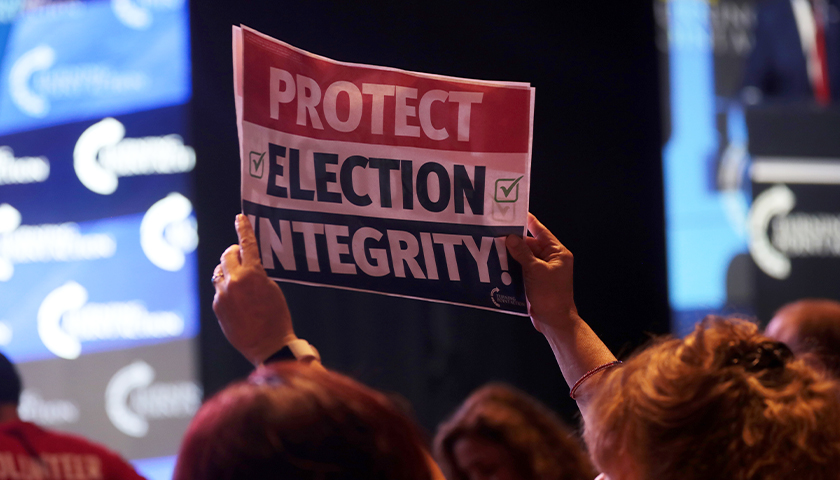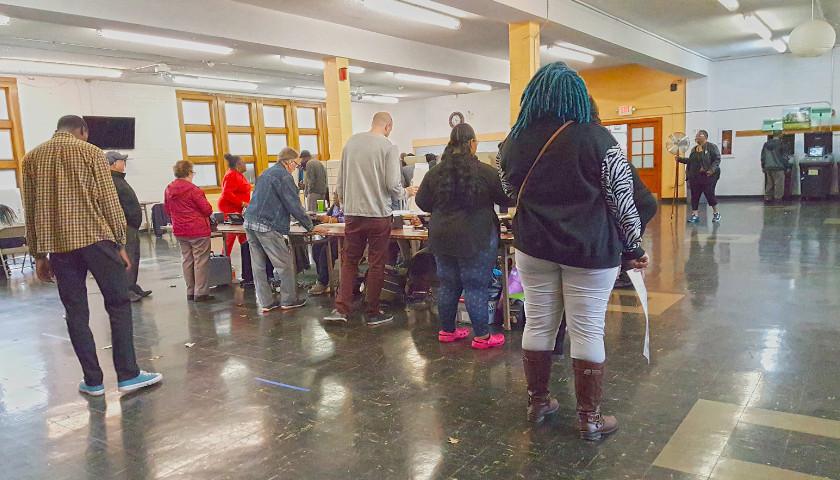Voter-fraud charges recently filed against a Philadelphia former judge of elections are spurring renewed emphasis by Pennsylvania legislators on enacting an election-integrity bill Gov. Tom Wolf (D) vetoed earlier this year.
State Rep. Seth Grove (R-York) introduced the initial version of his legislation in June. The measure, whose central feature was a voter-identification requirement for every election, quickly passed the House and Senate but Wolf rejected it as “voter suppression.” Since that time, the governor has sent mixed signals about whether he might support strengthened voter-ID rules, prompting Grove to reintroduce his bill.
So far, Democratic state lawmakers haven’t budged in their near-unanimous opposition to Grove’s Voting Rights Protection Act. On September 27, the Pennsylvania House State Government Committee, which Grove chairs, passed his bill but with no backing from the panel’s 10 Democrats.
Yet the new allegations against Marie Beren, until recently a staffer for Philadelphia City Councilman Mark Squilla (D-District 1), belie Democrats’ continuous downplaying of concerns over voter fraud. House Republicans are hoping the charges issued by Jennifer Arbittier Williams, the acting U.S. Attorney for the Eastern District of Pennsylvania, will illuminate what they see as a need for more stringent voter-ID stipulations.
Williams has leveled fraud and conspiracy charges against Beren for allegedly working at the behest of a Democratic political operative—reported to be scandal-plagued ex-Congressman Ozzie Myers—to fill out ballots in place of voters Beren was informed wouldn’t visit their polling place in 2015.
Beren, along with others who have not yet been named by prosecutors, is accused of writing down the names of the no-show voters in whose stead she is said to have voted in the poll book, making the voter-attendance records appear to jibe with the vote count. The U.S. attorney’s office has not yet noted the precise number of votes they believe Beren cast or whether her doing so changed the results of any electoral contests in 2015.
Grove has pointed to this case as evidence that his legislation is needed to secure elections in Pennsylvania. In a statement, he observed that because citizens can obtain public records on individuals’ voting history, those who would wish to commit fraud can get an idea ahead of time as to who is unlikely to either come to the polls or vote by mail.
In addition to tightening voter-ID standards, Grove’s bill would implement the use of e-poll books with links to the driver license database.
“The latest news of election fraud out of Philadelphia is extremely concerning and illustrates why enhanced voter identification and e-poll books—provisions included in the Voting Rights Protection Act—are so critical in preventing fraud,” Grove said in a statement. “It is time for Pennsylvania Democrats to stop denying voter fraud exists and work with us on this commonsense legislation that will make it easy to vote and hard to cheat in Pennsylvania.”
Many components of the Voting Rights Protection Act draw upon revelations generated by oversight hearings the Pennsylvania House State Government Committee held earlier this year. While the new version of the act includes many of the vote-security provisions contained in the original bill vetoed by Wolf, it also contains a number of changes offered by House Democrats to strengthen poll-worker retention and modernize polling-place operations.
Since 1994, at least 30 individuals have been found culpable in courts of law for some form of election fraud in Pennsylvania, according to the D.C.-based Heritage Foundation’s Election Fraud Database. The most recent of those is Domenick Demuro, a Philadelphia Democratic Judge of Elections who pleaded guilty to one count of conspiracy related to bribes he accepted to cast illegitimate ballots and incorrectly certify election results in the 2014, 2015 and 2016 primaries.
New discoveries of election-related misconduct have also been made elsewhere in America in the last few days: Michiganders Trenae Myesha Rainey, Carless Clark and Nancy Juanita Williams stand accused of turning in illegitimate ballot applications and ballots during the Nov. 2020 election. And two Fulton County, GA employees were fired last Friday after coworkers witnessed them destroying registration forms that had not yet been processed.
– – –
Bradley Vasoli is a reporter at The Tennessee Star and The Star News Network. Follow Brad on Twitter at @BVasoli. Email tips to [email protected].
Photo “Protect Election Intergrity” by Gage Skidmore CC BY-SA 2.0.





